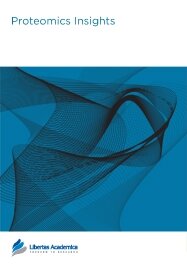

Publication Date: 17 Mar 2010
Type: Short Commentary
Journal: Proteomics Insights
Citation: Proteomics Insights 2010:3 17-24
doi: 10.4137/PRI.S3327

A majority of extant life forms require O2 to survive and thrive. Oxidation is inevitably one of the most active cellular processes and one constant challenge that living organisms must face. Generation of oxidants including reactive oxygen species is a natural consequence of cellular metabolism of all biological systems during normal life cycle under different environments. These oxidants oxidize many biological macromolecules such as proteins and affect their functions. Oxidation of specific amino acids in proteins may cause damage to protein structure and impair function, or may also activate protein activities and promote cellular metabolism. As an example, the reversible oxidation of cysteine and methionine residues has a profound impact on protein function and cellular process. A recent study that examines the effect of Met oxidation on Ser phosphorylation in a mitochondrial enzyme, pyruvate dehydrogenase, provides another demonstration that protein oxidation is an important regulatory mechanism for organisms to deal with developmental and environmental challenges throughout life processes.
PDF (854.42 KB PDF FORMAT)
RIS citation (ENDNOTE, REFERENCE MANAGER, PROCITE, REFWORKS)
BibTex citation (BIBDESK, LATEX)


I have published more than thirty research papers in internationally reputed high impact factor journals including Libertas Academica publications, Proteomics Insights and Analytical Chemistry Insights. I have no hesitation in saying that Proteomics Insights is highly efficient for its rapid and high quality review process and keeping the authors informed at each stage of the publication process. I recommend this journal for students, teachers and research workers who wish to publish their work. ...
Facebook Google+ Twitter
Pinterest Tumblr YouTube